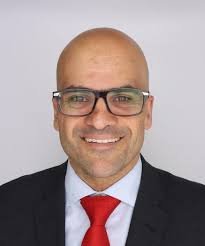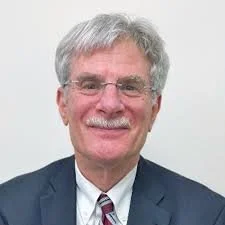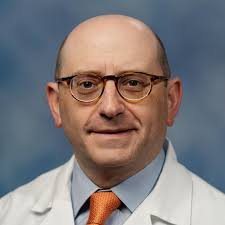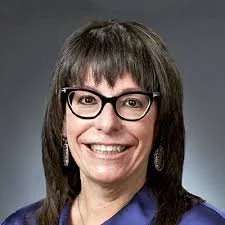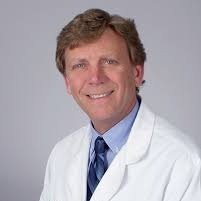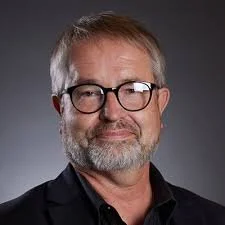January 16 - 21, 2025 at The Ritz-Carlton O‘ahu, Turtle Bay
Faculty Information
This year we are pleased to again bring together outstanding international leaders in gastric and esophageal disease as faculty. The faculty brings broad experience in benign and malignant disease and this year includes a mixture of gastroenterologists, surgeons, and pathologists to ensure a comprehensive, state-of-the-art, yet balanced approach to the diagnosis and management of patients with esophageal and foregut disorders.
The course was started by Drs Tom DeMeester and Don Castell. Tom DeMeester was Professor of Surgery and Chairman of the Department of Surgery at the University of Southern California. He is world-renowned for his numerous contributions to the field of esophageal disease, including the development of the DeMeester score to assess esophageal acid exposure during pH testing. Don Castell was Professor of Medicine and Director of Esophageal Function Laboratory at the Medical University of South Carolina, Charleston SC. He was internationally renowned for his contributions to esophageal function testing as well as diagnosis and therapy for gastroesophageal reflux disease. Sadly, Don passed away in 2021, but he will be long remembered for his detailed lectures on esophageal physiology, quick mind, and gregarious spirit while debating Tom and the other surgeons at the annual course. His legacy lives on with the spirited discussions that are a tradition at this course.
Currently, the course is co-directed by Steve DeMeester, MD and Philip Katz, MD. Steve DeMeester is a Thoracic Surgeon specializing in foregut disease and until recently was at The Oregon Clinic in Portland, OR. Prior to moving to Portland, he was Professor of Surgery and Clinical Scholar at the University of Southern California. He retired from clinical practice in 2023. Philip Katz is a Gastroenterologist specializing in esophageal diagnostics and therapy and is a Professor of Medicine at Weill Cornell Medicine, NYC. Prior to moving to Cornell, Phil was Chief of Gastroenterology and Nutrition at the Albert Einstein Medical Center, Jefferson Medical College in Philadelphia, PA. He is a past president of the American College of Gastroenterology.
Emeritus director Jeff Peters MD, and core faculty Stu Spechler MD, Felice Schnoll-Sussman MD, Daniela Molena, and Para Chandrasoma MD remain integral to the outstanding content and discussions for the course. Jeff Peters was Professor of Surgery and Chairman of the Department of Surgery at The University of Rochester, and then his most recent position was Chief Operating Officer for University Hospitals Healthcare System in Cleveland, OH. Stu Spechler is Chief, Division of Gastroenterology and Co-Director, Center for Esophageal Diseases at Baylor University Medical Center in Dallas and Co-Director, Center for Esophageal Research at Baylor Scott & White Research Institute. He is a recognized leader and has published extensively on topics in esophageal disease including GERD and Barrett’s esophagus. Felice Schnoll-Sussman is Professor of Clinical Medicine and Director of the Jay Monahan Center for Gastrointestinal Health and Director of Endoscopy, Division of Gastroenterology and Hepatology, Weill Cornell Medicine. She is known for her skills in advanced esophageal endoscopy including management of complex strictures and Barrett’s esophagus. Daniela Molena is Director of the Esophageal Surgery Program and Professor, Cardiothoracic Surgery at Weill Cornell Medical College, and Associate Attending, Thoracic Service at Memorial Sloan Kettering Cancer Center in New York, NY. Para Chandrasoma is one of the world’s leading experts in esophageal pathology and has proposed groundbreaking concepts related to the histology of the normal and the reflux-damaged gastroesophageal junction.
In addition to our core faculty, each year there are special guest faculty to highlight the specific topics that are being focused on at each year’s meeting. These topics include esophageal diagnostics, endoscopic imaging and interventions, the pathology of GERD and Barrett’s esophagus, esophageal motility abnormalities and diverticula, hiatal hernia, laryngopharyngeal reflux, medical, surgical, and endoscopic therapies for GERD and motility disorders, esophageal perforation and caustic injury, eosinophilic esophagitis, benign tumors of the esophagus and stomach, and the diagnosis, staging, and therapy for esophageal and gastric cancer. Check out the agenda for topics and areas of focus at the upcoming 2025 course!
Special guest faculty at the 2025 course:
FEATURED ON THE MEDICINE SIDE
Barham K. Abu Dayyeh, M.D., M.P.H.
Dr. Abu Dayyeh holds the position of Professor of Medicine at the Mayo Clinic in Rochester, MN, USA, where he also served as the Director of Advanced Endoscopy and the Assistant Medical Director for Business Development. Dr. Abu Dayyeh has developed multiple medical devices and innovative surgical endoscopic procedures. His contributions to the medical field are reflected in a portfolio of over 340 peer-reviewed publications in premier medical journals, as well as multiple patents. Dr. Abu Dayyeh received the Jordanian Star of Science Award by His Majesty King Abdullah II at the World Science Forum in the Dead Sea, Jordan, in 2017. Additionally, in 2022, he received the Surgical Innovator Award from The American Society for Bariatric and Metabolic Surgery.
David A. Katzka, M.D.
Dr. David A. Katzka is a Professor of Medicine and Head of the Esophageal Center at Columbia University. He is an Emeritus Professor of Medicine at the Mayo Clinic, Rochester. He has had a career-long interest in esophageal disease and has published numerous high-impact papers on a range of esophageal disorders that have aided our ability to diagnose and treat these conditions.
Joel Rubenstein, M.D., M.Sc.
Dr. Joel Rubenstein is a Research Scientist at the LTC Charles S Kettles Veterans Affairs Center of Excellence for Clinical Management Research. He is also Director of the Barrett's Esophagus Program and Professor in the Division of Gastroenterology at the University of Michigan. His research aims to develop efficient management strategies for identifying Barrett's esophagus and preventing death from esophageal cancer. Dr. Rubenstein's research has been supported by the National Institutes of Health, the Department of Veterans Affairs, Department of Defense, the Damon Runyon Cancer Research Foundation, and other sources. In addition to Barrett's esophagus, Dr. Rubenstein has clinical expertise in management of other esophageal disorders, including achalasia and eosinophilic esophagitis. Dr. Rubenstein is the former Chair of the Clinical Practice Section of the American Gastroenterology Association, and current Associated Editor of the American Journal of Gastroenterology.
Rhonda F. Souza, M.D.
Dr. Rhonda F. Souza is Co-Director of the Center for Esophageal Diseases at Baylor University Medical Center at Dallas, Co-Director of the Center for Esophageal Research at the Baylor Scott & White Research Institute, and Professor of Medicine at Texas A&M School of Medicine. Prior to joining Baylor University Medical Center in January 2017, Dr. Souza was Professor of Medicine at the University of Texas Southwestern Medical Center and the Dallas VA Medical Center.
Dr. Souza’s laboratory has focused primarily on disorders of the esophagus, especially GERD, Barrett’s esophagus, esophageal adenocarcinoma, eosinophilic esophagitis and esophageal motility disorders. For the past 20 years, she has worked closely with her scientific partner, Dr. Stuart Spechler, to establish a translational research center that incorporates cell culture models, animal models, and in vivo patient studies to answer research questions regarding esophageal diseases.
Dr. Souza is an NIH funded researcher and has published more than 150 scientific reports, editorials, review articles, and book chapters on esophageal disorders. She is In 2010, she was elected to the American Society of Clinical Investigation. Dr. Souza has served on the editorial boards of numerous journals including Gastroenterology, Clinical Gastroenterology and Hepatology, and JCI Insight, on NIH and VA study sections, and she has served as Chair of the Research Awards Panel of the American Gastroenterological Association (AGA) and Chair of the GI Oncology Section of AGA Council. She recently completed 6 years as Council Chair for the American Gastroenterological Association.
Sachin Wani, M.D.
Dr. Sachin Wani received his medical school training at the University of Mumbai – The Padmashree Dr. D. Y. Patil Medical College. He completed his GI fellowship at the University of Kansas followed by an advanced endoscopy fellowship at Washington University in Saint Louis.
His research has focused on various aspects related to Barrett’s esophagus and esophageal adenocarcinoma and has developed a successful track record of conducting epidemiologic studies that have defined the natural history of Barrett’s esophagus and related dysplasia. He has conducted studies that have established the effectiveness and safety of endoscopic eradication therapies, studies that have focused on improving the effectiveness of screening and surveillance practices along with improving the quality of endoscopy performed for this patient population. He has served as the primary or senior author for national GI society guidelines related to Barrett’s esophagus. His research has also addressed training in endoscopy and outcomes research in interventional endoscopy. He has authored greater than 250 publications in these areas. His research is funded by the National Institute of Health, multiple GI societies, the University of Colorado, industry, and private foundations. He is currently the principal investigator on multiple trials and has served on several national committees. Dr. Wani is committed to mentoring and has served as a mentor for many researchers, including medical students and residents, GI fellows, and junior faculty members.
FEATURED ON THE SURGICAL SIDE
Shahin Ayazi, M.D., FACS
Dr. Shahin Ayazi is a foregut surgeon and researcher affiliated with Allegheny Health Network and Drexel University College of Medicine. He completed his surgical residency at the University of Rochester Medical Center in Rochester, NY, followed by a fellowship in minimally invasive foregut surgery and advanced endoscopy at the Esophageal Institute in Pittsburgh, PA. He also completed a research fellowship in Thoracic and Foregut Surgery under the mentorship of Dr. Tom DeMeester at the University of Southern California.
In addition to his surgical practice, he serves as the director of the esophageal physiology center and director of the Chevalier Jackson research fellowship at Allegheny Health Network Esophageal Institute. His research is focused on the understanding of the physiology and pathophysiology of diseases of the esophagus and their surgical correction. His studies have resulted in more than 85 publications in peer-reviewed journals and more than 150 presentations in the national and international surgical meetings.
Dr. Ayaz is a Fellow of the American College of Surgeons (ACS), a member of the Society for Surgeons of the Alimentary Tract (SSAT), the Society of American Gastrointestinal and Endoscopic Surgeons (SAGES) and American Foregut Society (AFS). He holds leadership positions in these societies and is the Associate Editor of Foregut, the official journal of the American Foregut Society.
Guilherme M. Campos, M.D., Ph.D., FACS, FASMBS
Dr. Guilherme M. Campos is an expert in minimally invasive surgery and therapeutic endoscopy for obesity, esophageal, and gastric diseases. He is the Paul J. Nutter Professor and Chair of the Division of Bariatric and Gastrointestinal Surgery of Surgery at Virginia Commonwealth University in Richmond, Virginia; where he is also the Co-director of the Foregut, Advanced GI/MIS, and Bariatric Fellowship program.
Dr. Campos obtained an MD and PhD degrees and completed General and GI Surgery Residency at the University of Parana in Brazil. He also completed the last 3 years of the general surgery residency at the University of Southern California (USC) in Los Angeles, where he also was a Research and Clinical Fellow in Foregut Surgery under Dr. Tom DeMeester.
After USC, Dr. Campos served as Assistant Professor of Surgery and Director of the Bariatric Surgery Program at the University of California San Francisco till 2009. He then moved to the University of Wisconsin (UW) in Madison as Associate Professor and later promoted to Professor of Surgery. In 2015 he joined Virginia Commonwealth University.
Dr. Campos is a fellow of the American College of Surgeons and the American Society for Metabolic and Bariatric Surgery (ASMBS); and is an honorary Fellow of the Brazilian Society for Metabolic and Bariatric Surgery, the Austrian Surgical Society and the Austrian Society for Metabolic and Bariatric Surgery. He is also a member the Society for Surgery of the Alimentary Tract, the Society of University Surgeons, the Pacific Coast Surgical Association, American Foregut Society, among others.
He has authored or co-authored over 160 peer-reviewed articles and chapters in books, and serves as an Associate Editors for SOARD, the official Journal of the ASMBS, and as a member of the Editorial Board of the Journal of Gastrointestinal Surgery and Foregut.
John C. Lipham, M.D.
Dr. John C. Lipham is Chief of the Division of Upper GI and General Surgery and Professor of Surgery at the Keck School of Medicine of USC. He was the Inaugural President of the American Foregut Society and currently serves on the Board. Dr. Lipham also serves as the Foregut Cancer Program Director and Chief of USC Affiliated Academic Programs in Orange County. He is also the Co-Director of the USC Esophageal and Foregut Disorders Center at Keck Medical Center. He focuses on benign and malignant diseases of the esophagus and stomach. His clinical interests include the diagnosis and treatment of GERD, hiatal hernias, Barrett's esophagus, esophageal motility disorders, achalasia, malignant diseases of the esophagus and stomach. His current research interests include developing minimally invasive methods of diagnosing and treating gastroesophageal reflux disease, Barrett's, and esophageal cancer.
Sumeet K. Mittal, M.D.
Dr. Sumeet K. Mittal is a General surgeon and the Director of Center of Esophageal and Foregut Disorders at Norton Thoracic Institute as well as Professor of Surgery at Creighton University (PHX).
After medical school at the prestigious All India Institute of Medical Sciences in Delhi, India he completed his general surgery residency at Creighton University, Omaha, NE followed by a Foregut Fellowship under the tutelage of Dr Tom DeMeester at University of Southern California, Los Angeles, CA. He returned to Creighton University in 2003 becoming the Director of the Esophageal surgery program and the Esophageal functional testing lab. In 2016 he moved to Phoenix to join the Norton Thoracic Institute.
Dr. Mittal has clinical and research interest in benign and malignant esophageal diseases. He has contributed several articles on LES physiology and clinical outcomes of anti-reflux procedures. He has special interest in re-operative anti-reflux surgery. He has over 130 original publications.
Lee Swanstrom, M.D.
Dr. Swanstrom is Professor of Surgery at The Oregon Health and Science University, current Director of the American Board of Surgery, past President of the Society of American Gastrointestinal Endoscopic Surgeons (SAGES) and is a founder and Board Member of the American Foregut Society. Dr. Swanstrom received his MD degree from Creighton University following undergraduate work at the University of Paris (Sorbonne) and University of Colorado. He completed an internship and residency in general surgery in Portland and a fellowship in surgical endoscopy and GI surgery at the University of Western Ontario. Dr. Swanstrom's clinical focus is on minimally invasive treatments of a variety of esophageal and gastrointestinal disorders, particularly utilizing laparoscopy and interventional flexible endoscopy. He is a well-known educator and researcher with over 350 scientific papers, 80 book chapters and is the editor of 3 major surgical textbooks and the journal Surgical Innovation. His research focus is on foregut physiology, human factors and technology assessment and new procedure development. This has resulted in 23 patents and several medical device startup companies. He serves as a consultant to a large number of past and current medical device companies, but his greatest pride has been the large numbers of fellows and residents who have been inspired to push the envelope in the field of GI surgery.


